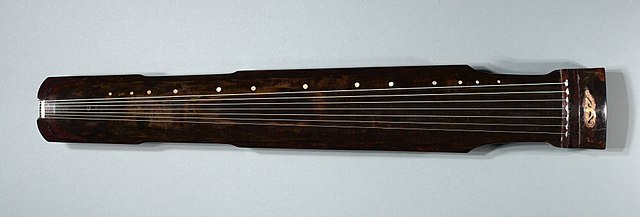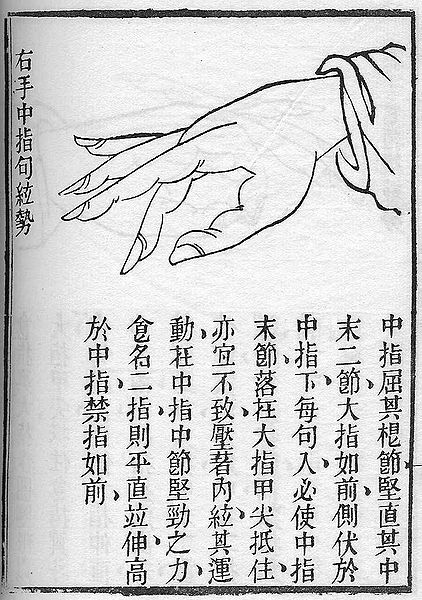The geomungo, alternate name hyeongeum, is a traditional Korean plucked zither with both bridges and frets. Geomungo is a representative stringed instrument made in Goguryeo before the 5th century. Scholars believe that the name refers to Goguryeo and translates to "Goguryeo zither" or that it refers to the colour and translates to "black crane zither".
Geomungo
An 11-stringed modern geomungo
The guqin is a plucked seven-string Chinese musical instrument. It has been played since ancient times, and has traditionally been favoured by scholars and literati as an instrument of great subtlety and refinement, as highlighted by the quote "a gentleman does not part with his qin or se without good reason," as well as being associated with the ancient Chinese philosopher Confucius. It is sometimes referred to by the Chinese as "the father of Chinese music" or "the instrument of the sages". The guqin is not to be confused with the guzheng, another Chinese long stringed instrument also without frets, but with moveable bridges under each string.
Guqin
A girl playing a guqin, Eastern Han dynasty, collection of the Musée des Arts Asiatiques de Toulon, France
The painting "Ting Qin Tu" (Listening to the Qin), by the Song emperor Huizong (1082–1135)
〈勾〉 Gou






